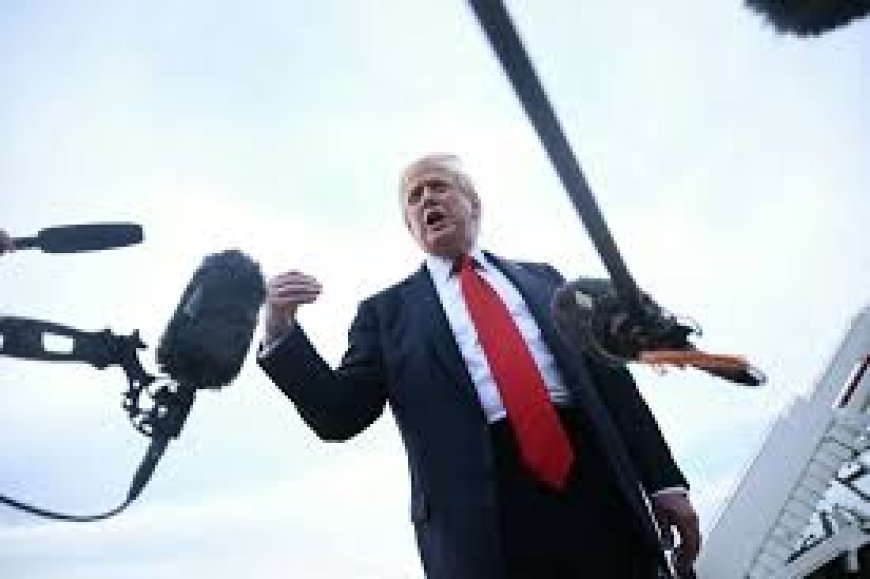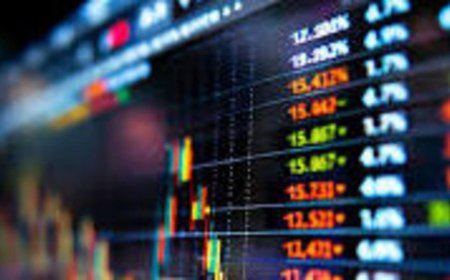Trump turns tariffs into political weapons
Donald Trump reintroduces aggressive tariff threats targeting China, Mexico, and electric vehicles, turning trade policy into a key political strategy for the 2024 U.S. elections.

Washington, D.C., July 14, 2025 –
Former U.S. President and Republican frontrunner Donald Trump has once again thrust tariffs into the center of American economic and political discourse, vowing sweeping levies on imports should he return to the White House in 2025. As he leans into populist and protectionist rhetoric on the campaign trail, analysts warn that his aggressive trade agenda may serve more as a political weapon than an economic solution.
Trump has proposed tariffs of 60% or more on Chinese goods, a 10% universal baseline tariff on all imports, and specific penalties on Mexican goods to stem immigration. He also aims to counter the influx of Chinese electric vehicles (EVs), alleging national security threats. This combative trade posture has sparked concern among businesses, economists, and global investors, reigniting memories of the trade wars during his first term.
Tariffs as Political Leverage
Tariffs have historically been used as tools for trade balance correction or economic protection. Under Trump, however, they have evolved into campaign symbols — rallying his base and positioning him as a defender of American workers and industries.
"Tariffs are no longer just trade policy; they are messaging tools," said Laura Connors, senior fellow at the Center for Strategic and International Studies. "Trump uses them to create a narrative of foreign threat and domestic victimhood, which resonates with his core voters."
While such rhetoric may energize political support in industrial states like Pennsylvania and Michigan, economists argue the economic cost could be severe.
Market Flashbacks and Global Fallout
The global markets have been quick to react to Trump's renewed trade threats. Following his June campaign speech hinting at "an economic revolution" through import levies, the Dow Jones Industrial Average dipped by over 450 points in intraday trading, with tech and auto sectors hardest hit.
Investors recall the 2018–2019 trade war era, which saw $360 billion in Chinese goods taxed and retaliatory tariffs imposed on American exports. The resulting uncertainty dampened corporate investment and disrupted global supply chains.
"Markets hate unpredictability, and tariff policies under Trump are inherently unpredictable," said Martha Lee, global macro strategist at Barclays. "While they may serve short-term political ends, they inject long-term risk into cross-border commerce."
China in the Crosshairs
At the heart of Trump's tariff doctrine lies China. Echoing the "decoupling" language of his first term, he has pledged to target Chinese manufacturing, citing unfair trade practices and intellectual property theft. Notably, his campaign has promised tariffs of at least 60% on Chinese goods — a move experts say could trigger a second wave of retaliatory measures from Beijing.
“China will not sit idle,” said Dr. Evan Liu, a trade economist at the Peterson Institute. “Beijing could restrict rare earth exports, impose sanctions on U.S. firms in China, or shift trade ties further toward Europe and the Global South.”
In anticipation, Chinese state media have warned of "grave consequences" and called Trump’s proposals “an affront to multilateralism.”
The EV Tariff War
One of the most charged elements of Trump’s proposal is his stance on Chinese electric vehicles, which he alleges pose cybersecurity threats due to embedded software that could potentially be used for surveillance. He has called for an outright ban or punitive tariffs on Chinese EVs.
While President Joe Biden recently imposed 100% tariffs on Chinese EVs under the Inflation Reduction Act framework, Trump’s framing is more confrontational.
"This is less about environmental protection or industrial competitiveness," said Angela Morgan, senior policy advisor at Auto Trade Alliance. "It’s about fear, sovereignty, and reshoring — framed through a political lens."
Investor Outlook: High Risk, Low Clarity
For global investors, the possibility of Trump’s return and his tariff-first economic policy adds a volatile dimension to portfolio planning. With U.S.–China tensions already strained, the escalation of trade hostilities could lead to slower global growth, inflationary pressures, and fractured supply chains.
"An across-the-board 10% tariff, as Trump has suggested, would be essentially a tax on American consumers," said Dan Wexler, Chief Economist at JP Holt. "It may support specific industries temporarily, but it distorts pricing and invites retaliation."
Equities in sectors such as semiconductors, automotive, agriculture, and manufacturing are likely to experience fluctuations. Defensive sectors and domestic-facing firms may become more attractive during this period of geopolitical stress.
Populism Meets Policy
With the 2024 elections looming, Trump’s tariff strategy doubles as both economic doctrine and campaign choreography. While the slogans may rally disaffected workers and play well in battleground states, their implementation could fracture alliances, destabilize markets, and burden consumers.
As trade becomes a central battlefield in U.S. politics once more, businesses and investors will have to prepare for a scenario where policy is driven not just by economic logic — but by political calculus.
What's Your Reaction?
 Like
0
Like
0
 Dislike
0
Dislike
0
 Love
0
Love
0
 Funny
0
Funny
0
 Angry
0
Angry
0
 Sad
0
Sad
0
 Wow
0
Wow
0












































































